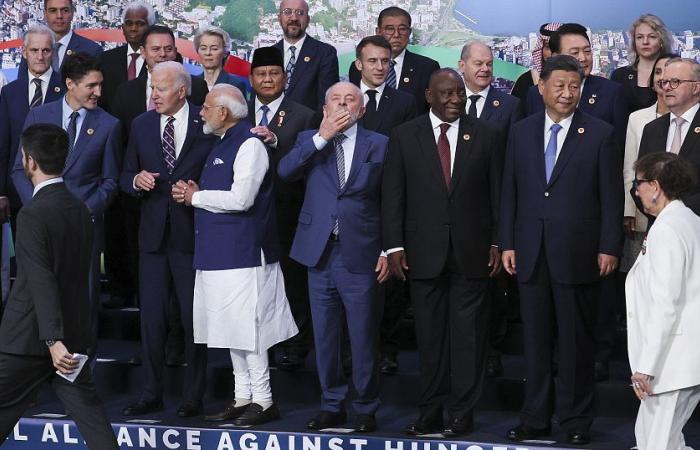On November 19, Brazilian President Luiz Inácio Lula da Silva officially closed the Group of Twenty (G20) summit by handing over the presidential torch to South African President Cyril Ramaphosa.
In his speech, Lula underlined the importance of this moment, recalling that, for the first time, each member of the G20 will have held the presidency at least once.
“After the South African presidency, all G20 countries will have held the leadership of the group at least once. This will be an opportune time to assess the role we have played so far and determine how we should act in the future,” he said, emphasizing the need for collective reflection on the group’s future actions.
The summit allowed the world’s 20 leading economies to issue a joint statement focusing on major global issues. This document calls in particular for a global pact against hunger, increased aid for Gaza, as well as an end to the war in Ukraine. He also mentions proposals for a future global tax on billionaires and reform of the UN Security Council. However, the text was criticized for its lack of concrete measures and did not achieve unanimous support, with Argentina expressing reservations on certain points.
By symbolically handing over the gavel of the presidency to President Ramaphosa, Lula da Silva underlined the historical importance of this handover. **“We have a responsibility to do better. It is with this hope that I pass the gavel of the G20 presidency to President Ramaphosa. This is not a simple handover of the presidency – it is the expression concrete presentation of the historical, economic, social and cultural links that unite Latin America and Africa”,** he said.
For South Africa, this presidency represents a unique opportunity to highlight the continent’s priorities on the international stage. In line with the African Union’s Agenda 2063, Pretoria intends to focus its efforts on combating inequality, developing infrastructure and reforming global institutions. South Africa also plans to tackle multiple crises, such as climate change, food security and energy, which disproportionately affect developing nations.
This presidency marks a crucial step for the G20, whose recent integration of the African Union as a permanent member reflects the growing recognition of Africa’s role in world affairs.






